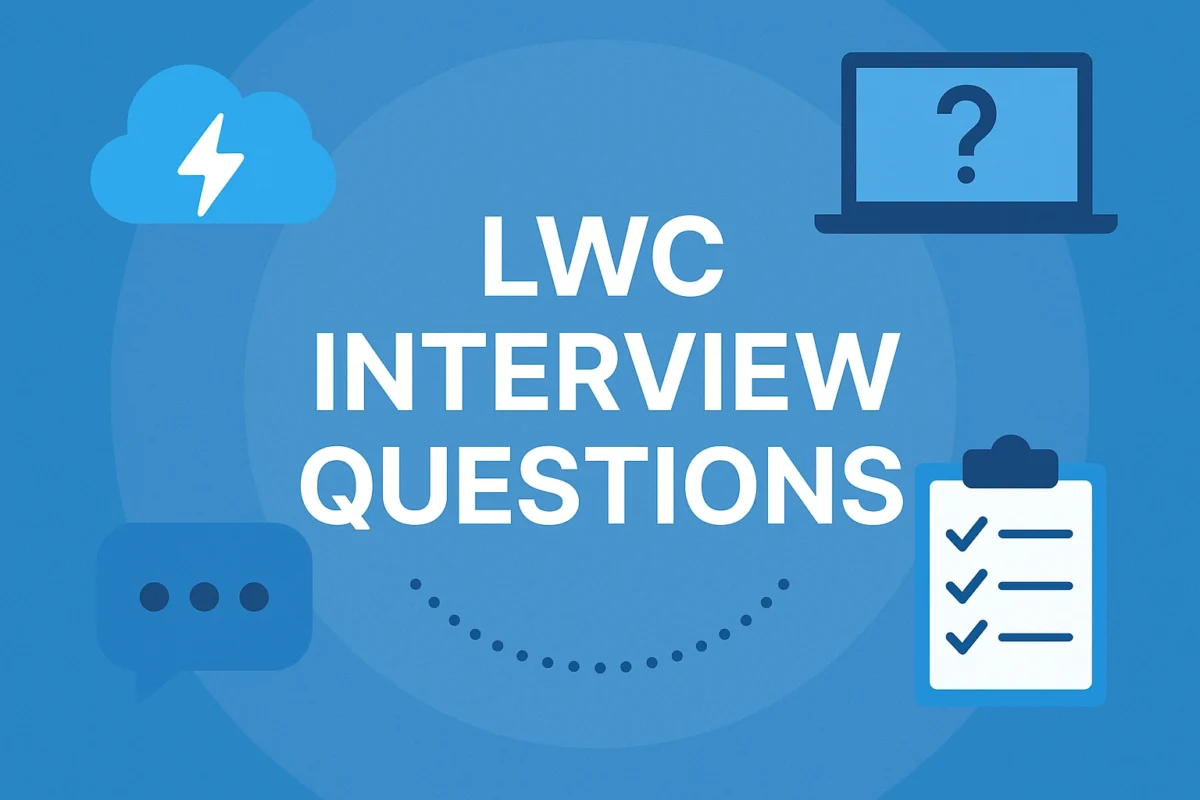
If you’re preparing for a Salesforce developer interview, especially one focused on Lightning Web Components (LWC), you’re in the right place. With the rising demand for modern Salesforce development, LWC interview questions are a crucial part of the hiring process.
This guide offers top LWC questions and answers, ranging from basic to advanced, to help you ace your interview with confidence. We’ve also included a helpful FAQ section at the end!
What is LWC in Salesforce?
Lightning Web Components (LWC) is a modern web standards-based UI framework introduced by Salesforce. Built using JavaScript, HTML, and CSS, LWC provides faster performance, better testing, and native browser support compared to older frameworks like Aura.
🔗 Also read: Apex Interview Questions
Top LWC Interview Questions and Answers
1. What are Lightning Web Components?
Answer: Lightning Web Components are custom HTML elements built using core Web Components standards and are optimized for the Salesforce platform.
2. Difference Between LWC and Aura Components?
Answer:
| Feature | Aura | LWC |
|---|---|---|
| Language | JavaScript + Apex + Aura markup | Modern JS (ES6+), HTML |
| Performance | Moderate | Fast |
| Testing | Complex | Easier |
| Reusability | Limited | Highly reusable |
Answer:
-
Based on modern web standards
-
Native support for JavaScript modules
-
Lightweight and better performance
-
Two-way data binding
-
Seamless integration with Apex and Aura
4. What is the lifecycle of LWC?
Answer: The component lifecycle methods in LWC are:
-
constructor() -
connectedCallback() -
renderedCallback() -
disconnectedCallback() -
errorCallback(error, stack)
5. What is reactive property in LWC?
Answer: A property marked with @track or public property marked with @api that triggers the re-rendering of the component when its value changes.
6. How do you communicate between LWC components?
Answer:
-
Parent to Child – using
@apidecorator -
Child to Parent – using custom events
-
Sibling Communication – through Pub/Sub model or Lightning Message Service
7. What is Lightning Data Service (LDS)?
Answer: LDS allows you to work with Salesforce data without writing Apex code. It handles field-level security, sharing rules, and CRUD operations.
8. How do you call Apex from LWC?
Answer: Using @wire decorator or imperative Apex calls via imported Apex methods from the controller.
9. What are decorators in LWC?
Answer:
-
@api– to expose a property to parent -
@track– to make a property reactive -
@wire– to read Salesforce data
10. Can LWC be used inside Aura Components?
Answer: Yes, LWC can be embedded inside Aura components, but not vice versa.
Advanced LWC Interview Questions
11. How do you handle error boundaries in LWC?
Answer: Using the errorCallback(error, stack) method, you can handle errors and debug issues.
12. Explain the usage of Lightning Message Service.
Answer: It enables communication between components across the DOM without the need for parent-child or sibling relationship.
13. What is a shadow DOM in LWC?
Answer: Shadow DOM encapsulates the component’s markup and styles, preventing leakage to or from other components.
14. What is the difference between @wire and imperative Apex calls?
| Feature | @wire | Imperative |
|---|---|---|
| Syntax | Declarative | Programmatic |
| Usage | Automatically invokes | Called on button click or condition |
| Caching | Enabled | Not cached |
15. How to use slots in LWC?
Answer: Slots allow you to create reusable templates where the content can be injected dynamically.
📌 Related Topics
FAQs on LWC Interview Questions
Q1. Are Lightning Web Components still in demand in 2025?
Yes, LWC is the future of Salesforce UI development, and nearly every new Salesforce project prefers it over Aura.
Q2. What are the best resources to learn LWC?
-
Salesforce Developer Docs
-
Trailhead Modules
-
YouTube Tutorials
-
Hands-on Projects on Developer Org
Q3. Is LWC only for Salesforce developers?
Primarily yes, but front-end developers familiar with JavaScript can also learn LWC and transition into Salesforce development.
Q4. What is the salary range for LWC developers?
In India, LWC developers earn between ₹6 LPA to ₹20+ LPA depending on experience. In the US, salaries can range from $80,000 to $140,000 annually.
Q5. Do I need to know Apex to work with LWC?
Not always, but Apex knowledge is essential for server-side logic, especially for custom business logic and database interaction.
Final Thoughts
Mastering these LWC interview questions will give you an edge in any Salesforce developer interview. As LWC becomes the dominant framework in Salesforce, these questions will remain relevant in 2025 and beyond.
For more interview tips and real-time Salesforce content, keep visiting Cloud Intellect.

